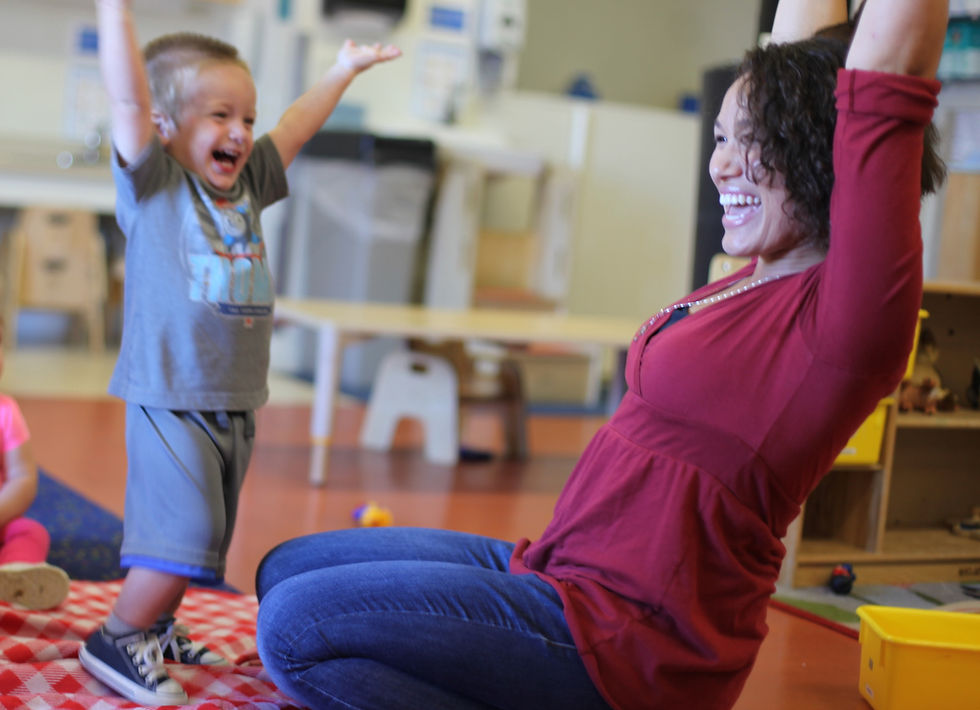Music and Social Learning
- Kalabhavan
- Aug 24, 2016
- 4 min read

Singing and music play an important role in our culture. You'll find music present in many aspects of our lives: theater, television, movies, worship, holidays, celebrations, and government and military ceremonies. But none is as important as how we use music with our children.
From birth, parents instinctively use music to calm and soothe children, to express their love and joy, and to engage and interact. Parents can build on these natural instincts by learning how music can impact child development, improve social skills, and benefit kids of all ages.
The Benefits of Music
Music ignites all areas of child development: intellectual, social and emotional, language, and overall literacy. It helps the body and the mind work together. Exposing children to music during early development helps them learn the sounds and meanings of words. Dancing to music helps children build motor skills while allowing them to practice self-expression. For children and adults, music helps strengthen memory skills.
Children's Music and Social Learning
For toddlers and preschoolers, music making can be a dynamic social learning experience. Making music together, children learn to work as a team while they each contribute to the song in their own way. At the same time, music helps children learn that together they can make something larger than the sum of its parts.
More benefits of music for children include learning cooperation, sharing, compromise, creativity, and concentration - skills that become invaluable as they enter school, face new challenges, and begin to form new friendships and develop social skills
Developmental Benefits of Music
Children of all ages express themselves through music. Playing music for infants proves that, even at an early age, children sway, bounce, or move their hands in response to music they hear. Many preschoolers make up songs and, with no self-consciousness, sing to themselves as they play. Kids in elementary school learn to sing together as a group and possibly learn to play a musical instrument. Older children dance to the music of their favorite rock bands and use music to form friendships and share feelings.
Infants and Music. Infants recognize the melody of a song long before they understand the words. They often try to mimic sounds and start moving to the music as soon as they are physically able. Quiet, background music can be soothing for infants, especially at sleep time. Loud background music may overstimulate an infant by raising the noise level of the room. Sing simple, short songs to infants in a high, soft voice. Try making up one or two lines about bathing, dressing, or eating to sing to them while you do these activities.
Toddlers and Music. Toddlers love to dance and move to music. The key to toddler music is the repetition of songs which encourages the use of words and memorization. Silly songs make them laugh. Try singing a familiar song and inserting a silly word in the place of the correct word, like “Mary had a little spider” instead of lamb. Let them reproduce rhythms by clapping or tapping objects.
Preschoolers and Music. Preschoolers enjoy singing just to be singing. They aren’t self-conscious about their ability and most are eager to let their voices roar. They like kids' songs that repeat words and melodies, rhythms with a definite beat, and words that ask them to do things. Preschool children enjoy nursery rhymes and songs about familiar things like toys, animals, play activities, and people. They also like finger plays and nonsense rhymes with or without musical accompaniment.
School-Age Children and Music. Most school-age children are intrigued by songs that involve counting, spelling, or remembering a sequence of events. Songs and musical activities with other school subjects also are effective during this child developmental stage. School-age children begin expressing their likes and dislikes of different types of music. They may express an interest in taking musical lessons.
Teenagers and Music. Teenagers may use musical experiences to form friendships, and to set themselves apart from parents and younger kids. They often want to hang out and listen to music after school with a group of friends. Remember those days of basement and garage bands? They often have a strong interest in taking music lessons or playing in a band, the lure of becoming a rock idol. School-agers and teenagers might need a reminder to keep the volume down, particularly with headsets. If we can hear music through an MP3 player headset when it's not in our own ears, it’s probably too loud.
Final Thoughts
There is no downside to bringing children and music together. Although a good dose of Mozart is probably not increasing our brain power, it’s enjoyable and beautiful. From the pure pleasure of listening to soothing sounds and rhythmic harmonies, to gaining new language and social skills, whatever the setting - a quiet room at home with mom and dad, a large grassy field filled with people, or a busy classroom - music can enliven and enrich the lives of children and the people who care for them.




Comments